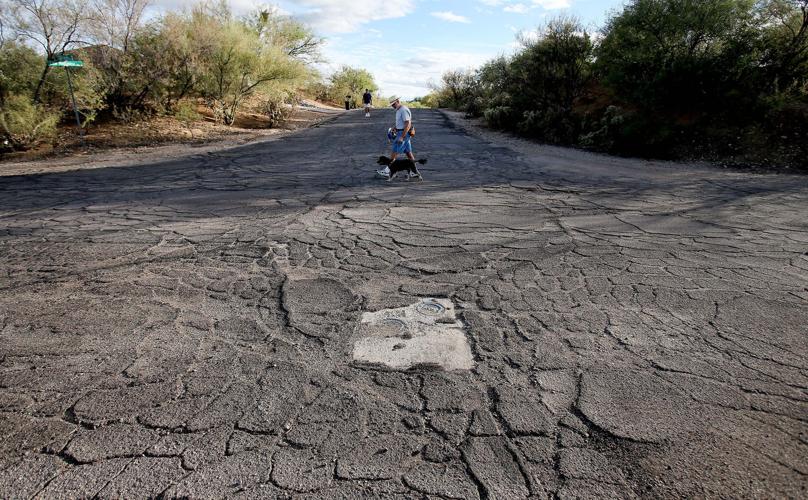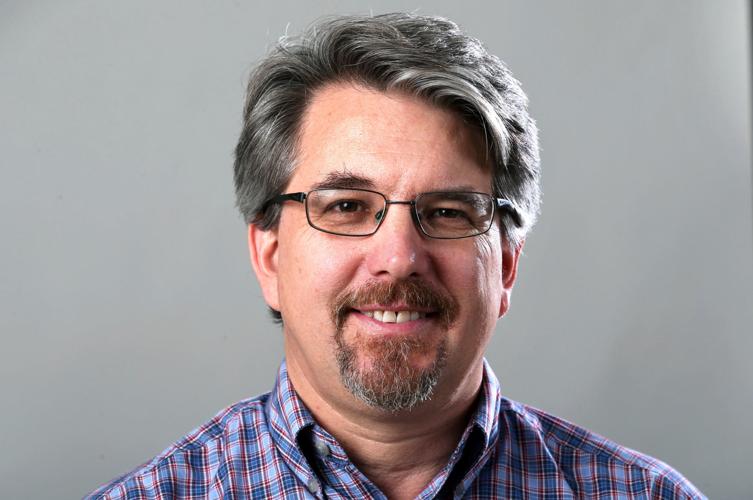You can only say “no” so long and expect people to accept it.
But Pima County supervisors seem determined to find out exactly when the public’s patience wears out.
On Tuesday, the supervisors considered an ordinance that is the necessary first step to imposing a new, half-cent sales tax to pay for road repairs. They passed it, but by a 3-2 margin.
Any no votes now mean the ordinance is doomed when it receives final consideration June 19, in the final step to imposing the tax.
By state law, that vote must be unanimous, and the votes simply aren’t there.
So, years into our road-repair crisis, we remain stuck in a Pima pothole of political dysfunction. And voters should start taking a hard look at officials who complain about the roads but can never find a way to say “yes” to a solution, or demand too much in exchange for their yes vote.
Exhibit A is Supervisor Ally Miller. She has said for years that road repair is her top priority, lambasting the county for the terrible condition of its streets, but no solution has met her exacting demands. She has been a consistent no.
Take what happened in the Legislature this year.
Sen. Bob Worsley, a Mesa Republican, wrote a bill that would have changed the way counties can pay for transportation projects. Pima County’s board would have been allowed to refer to the ballot, by a majority vote, a proposal to add a half-cent to the existing half-cent sales tax for the Regional Transportation Authority. Then that authority would have been able to use the resulting money for road repairs.
Miller opposed the bill, particularly the part that allowed the tax increase to be referred to voters with only a majority vote.
She wanted a unanimous vote — just for a referral to the ballot so that we could vote on it.
Tuesday’s vote was also on a proposed sales-tax increase of a half-cent, but it was a different proposal. It would have been for a sales tax that goes into the general fund and is managed by the supervisors, though it had some guarantees that the money would only be used for roads.
Under current law, only counties with populations under 400,000 may approve separate road taxes that don’t go into the general fund.
Miller explained her “no” vote Tuesday by saying this: “What I have agreed to look at is an actual road sales tax. Right now we are unable to do that because of the population requirement of 400,000 or less.
“I’ve agreed to look at those statutes and possibly support legislation in the next legislative session to work on that. I believe the taxpayers absolutely deserve to have a fund that is ironclad, that doesn’t have any possibility of monies being moved.”
Of course, the legislative proposal by Worsley was “ironclad,” and she opposed it.
The bill “did, effectively, do what supervisor Miller seemed to be wishing for in her comments on Tuesday,” said Michael Racy, Pima County’s lobbyist, who worked to get the bill through the Legislature.
Ultimately that bill failed, but not directly because of the opposition of Miller and some of her allies, Racy said.
Concerns about how money could be spent in Maricopa County held the measure back in the rush to wrap up the session, when House Speaker J.D. Mesnard refused to bring it to the floor for a final vote.
Neither Miller nor her staff would explain her position to me last week, but it appears if she’s to approve any new tax, she prefers a road tax like those available in smaller counties that could not be used for any other purpose, but she wants it to be administered by the county board, not by the regional transportation authority.
Of course, Miller prefers not to impose any new tax and has listed 30 spending cuts that she argues would raise $1.1 billion. However, the list is a mish-mash of realistic savings and complete fantasies.
For example, she lists $70 million already spent on “The Loop” as a potential savings.
Leaving aside that the money has been spent and can’t be saved in the future, most of that money was for bank preservation, with the actual paved path just a small portion of the spending.
Exhibit B is board Chair Richard Elías. Elías has long been an opponent of raising sales taxes because they have a disproportionate impact on the poor. It was unclear up till Tuesday how he would vote on the proposed ordinance.
But the ordinance was written in such a way as to win his vote. It required $3 million in additional general-fund spending “for programs and services that have the purpose of improving the financial stability and health of low-income households.”
That was just for the first of the 10 years. Under the ordinance, the county would have had to add $500,000 to this amount every year.
Elías’ explanation to me Friday: “The truth is, the safety net here in Arizona has been attacked and destroyed. There’s a constant erosion of services available to lower-income people that’s been going on for 15 years.”
That may be true, but it’s questionable what the deteriorating safety net has to do with solutions for the county’s roads. And of course, this effort to secure Elías’ vote with general-fund spending ended up losing another crucial vote.
Exhibit C is Supervisor Steve Christy. He voted “no” on Tuesday’s ordinance largely because of the social-service funding that was inserted to win Eíias’ vote. During the meeting, Christy seemed to misunderstand the plan, saying that sales-tax money intended for roads would be spent on social services, when Christy said he wanted “100 percent of the revenues generated for this plan (to) go directly to the roads. This ordinance does not come close to meeting that requirement on my part.”
Actually, it did — under the plan all the sales-tax money would be required to go to roads, and there were several safeguards to ensure that didn’t change, including outside audits by the RTA and the state auditor general.
But when we talked Friday, Christy told me he did not support the increased social spending no matter where it came from.
“Over the life of the ordinance, a 10-year lifespan, it is between $50 million and $55 million,” he said. “That was unacceptable to me.”
Christy has proposed his own “Just Fix the Roads” plan, which involves a half-cent sales tax administered by the Regional Transportation Authority, and at Tuesday’s meeting, he said “I certainly hope there is a feeling among the board as well as among the community that the important thing is that we just fix the roads, that we find a way to do it.”
But again, when forced to make a decision, he voted no.
Supervisors Sharon Bronson and Ramon Valadez have been less doctrinaire in their demands.
Bronson told me Friday that the next option is for the county to put to voters a proposal of selling bonds to pay for road repairs. That may be on a ballot as soon as November.
Whatever the solution, the supervisors — especially Exhibits A, B and C —need to somehow find a way to “yes” or face the wrath of voters who will rightfully question whether they actually prioritize repairing the roads as much as they say.





